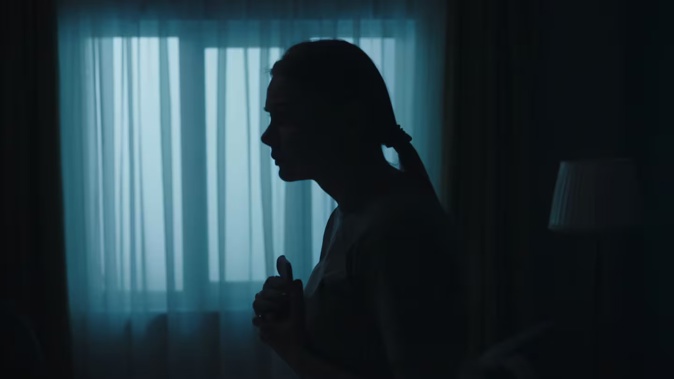

A woman with paranoid schizophrenia and breast cancer is believed to have been exploited by people who regularly visit her social housing flat and cause mischief at the complex, leaving her fighting to keep her tenancy.
The visitors reportedly scared children, smoked in the lifts and hallways, broke the lifts, left rotten food and rubbish in shared areas, knocked on neighbours’ doors, shouted and played loud music.
It has become such an issue that other tenants want to move out of the complex, and now the landlord, Emerge Aotearoa Housing Trust, wants her gone too.
But the Tenancy Tribunal, which considered the landlord’s application to terminate the woman’s tenancy, believed she may not be aware of the extent of the issues her visitors caused.
The woman, who has name suppression, told the tribunal that she was scared of the people who visited her.
Visitors intimidated other tenants
A recently-released decision described her as “extremely vulnerable” and likely to have been taken advantage of.
While she let the visitors into her flat, they also gained access when she did not lock her door.
“It seems that she does not ask them to leave because she is afraid to do so. She mentioned that she is sometimes scared that they might bang down her door,” tribunal adjudicator Kaye Stirling said in the decision.

The Tenancy Tribunal ruled not to evict the tenant on this occasion. Photo / Stock Image 123RF
According to the decision, the woman’s tenancy at the multi-level social housing complex began in 2020.
The trust, which offers a range of health, housing and social services across the country, said it has issued her with numerous 14-day notices since she moved in following complaints from other tenants at the complex.
A pattern developed where the woman, her visitors or both engaged in noisy, disruptive behaviour, which usually stopped when she was served with a notice, only for it to start up again days or weeks later, the trust told the tribunal.
It provided copies of three notices issued to the woman this year but none from previous years or evidence of complaints, such as complainants’ statements or photos.
However, the trust did give a timeline of complaints from last year and said some tenants had asked to be transferred to other properties because of the issue.
A tenancy manager overseeing several flats in the building for another provider said he also had received complaints concerning the woman, and he supported the trust’s application to evict her.
He said the woman was a “nice person” but her visitors intimidated other tenants, who were also vulnerable.
‘May not be aware’
The woman’s support worker emphasised it was the visitors mostly responsible for the issues.
She told the tribunal she would provide further assistance to the woman through regular check-ins at the flat.
The woman acknowledged that her visitors caused disruption.
“For example, she says that she does not have a stereo or TV and that music played loudly from her flat has been on devices her visitors have brought in,” Stirling said.
“It was my impression during the hearing, that the tenant may not be aware of all the disruptive behaviour being caused by visitors to her flat when they are roaming the building.”
Health professionals advocated for the woman to remain at the property as she was about to start chemotherapy and needed stable, safe and reliable accommodation near the hospital.
‘Not a just and equitable outcome’
The tribunal accepted there was evidence the woman breached the Residential Tenancies Act (RTA) by having visitors who disturbed others in the building, and she had not taken reasonable steps to ask them to stop or leave.
However, it found she had not committed the breaches deliberately.
The tribunal also found the 14-day notices inadequately specified the nature of the woman’s breaches which required remedy, and all the alleged behaviour had not been proved.
It said even if the notices were valid and had not been remedied, it had to consider whether it would be inequitable not to terminate the tenancy.
“Based on the available evidence of breaches in 2025 and my concerns about the number of breaches proved, I consider termination at this stage would be a disproportionate response. I also take into account the tenant’s health situation and need for a stable environment,” Stirling wrote.
“I find that termination is not a just and equitable outcome on this occasion.”
However, the woman was warned if there was a repeat of the behaviour complained of, and the landlord made another application, she may be evicted.
It was discussed with her about what she could do if she did not want people in her home, or what to do if they became disruptive, including calling the police if they would not leave.
‘We have an obligation to address issues’
Hope Simonsen, Emerge Aotearoa Housing Trust’s general manager, acknowledged the tribunal’s decision and said the trust would continue to work with the woman as her landlord.
“Emerge Aotearoa tries hard to balance the needs of tenants with the quiet enjoyment of neighbours,” she said in a statement to NZME.
“The tenant in this situation did require a high level of support to ensure they are enabled to live well.
“Over the term of this tenancy there was ongoing disruption to neighbours which we understand were at least in part caused by the tenant’s visitors; however, under the RTA, tenants are responsible for their visitors’ behaviour.
“As a landlord, we have an obligation to address issues that impact negatively on neighbours.”
Tara Shaskey joined NZME in 2022 and is currently an assistant editor and reporter for the Open Justice team. She has been a reporter since 2014 and previously worked at Stuff covering crime and justice, arts and entertainment, and Māori issues.

Take your Radio, Podcasts and Music with you









